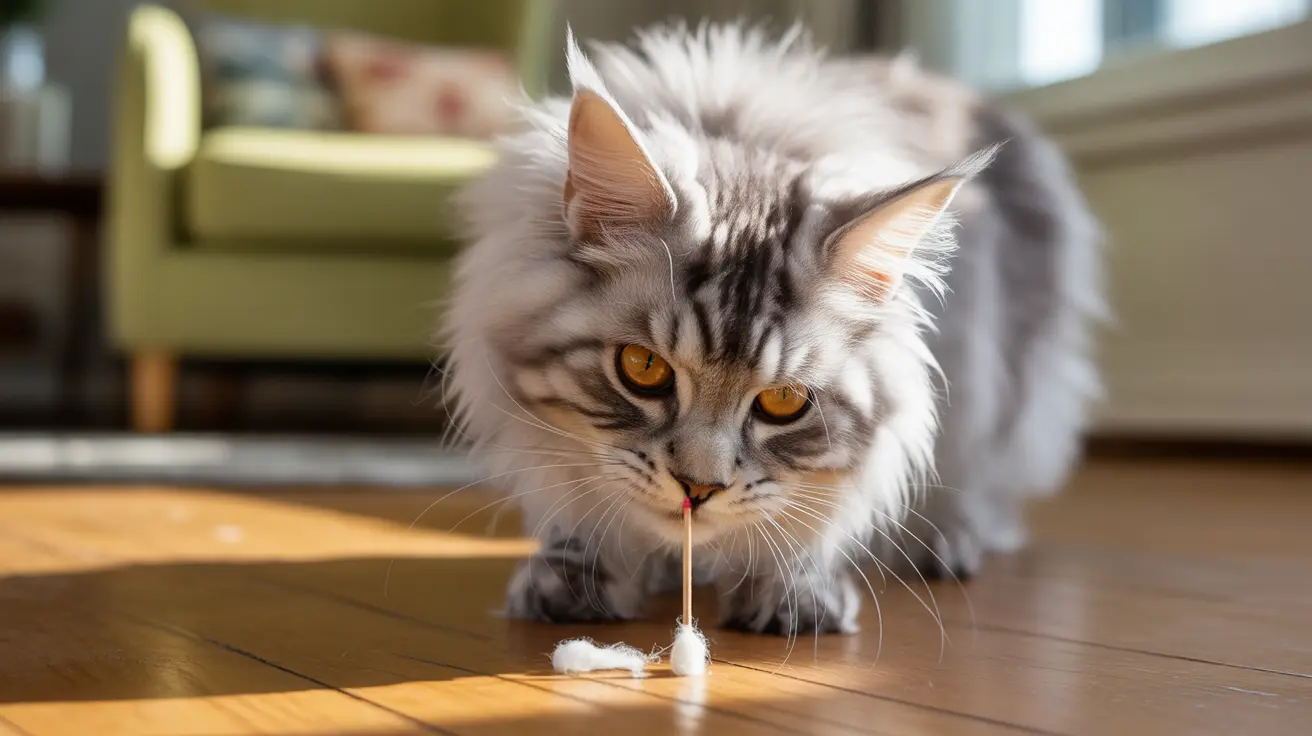If you've ever caught your cat showing an unusual interest in your ears or discarded Q-tips, you're not alone. Many cat owners are puzzled by their feline friends' fascinating attraction to earwax. This peculiar behavior, while sometimes concerning to pet parents, actually has several scientific explanations rooted in cats' biology, instincts, and evolutionary history.
Let's explore the fascinating reasons behind this quirky feline behavior and understand what makes earwax so appealing to our furry companions.
The Biological Attraction to Earwax
Cats' attraction to earwax primarily stems from its rich composition of proteins and fats. As obligate carnivores, cats are naturally drawn to these nutrient-dense compounds, which their bodies recognize as potential food sources.
Human earwax (cerumen) contains several components that cats find irresistible:
- Fatty acids
- Proteins
- Cholesterol
- Dead skin cells
The Power of Scent
Cats possess an extraordinary sense of smell, with approximately 200 million scent receptors compared to our mere 5 million. This superior olfactory system makes them particularly sensitive to the strong, distinct odor of earwax, which can signal the presence of beneficial nutrients.
Social Bonding and Grooming Behavior
When cats show interest in earwax, they may also be expressing natural social and grooming behaviors. In the wild, cats engage in mutual grooming (allogrooming) as a way to strengthen social bonds and maintain hygiene within their group.
This instinctive behavior extends to their human family members, explaining why your cat might try to groom your ears or show particular interest in them.
Evolutionary Instincts at Play
From an evolutionary perspective, cats' interest in earwax may be linked to their ancestral hunting and scavenging behaviors. The compounds present in earwax are similar to those found in prey animals, triggering their natural hunting and exploration instincts.
Health and Safety Considerations
While cats' interest in earwax is generally harmless, there are some important health considerations to keep in mind:
- Keep used Q-tips and ear-cleaning materials away from cats
- Monitor for excessive ear-licking behavior
- Watch for signs of ear infections or other health issues
- Provide appropriate alternatives for environmental enrichment
Frequently Asked Questions
Why are cats attracted to the smell and taste of earwax?
Cats are attracted to earwax because it contains proteins and fats that appeal to their carnivorous nature. Their highly developed sense of smell detects these nutritional compounds, making earwax an interesting substance for them to investigate.
Is it safe for my cat to lick or eat earwax from humans?
While small amounts of earwax are generally not harmful to cats, it's best to discourage this behavior. Human earwax may contain harmful bacteria, chemicals from beauty products, or other contaminants that could be unsafe for your cat.
Does my cat licking my ears mean it's showing affection or grooming behavior?
Yes, when cats lick your ears, it's often a combination of social grooming and showing affection. This behavior is similar to how cats groom other cats in their social group, indicating that they consider you part of their family.
How can I prevent my cat from eating earwax or used Q-tips safely?
Keep all ear-cleaning materials in closed containers or drawers your cat can't access. Dispose of used Q-tips immediately in a covered trash can, and provide appropriate toys and enrichment activities to redirect your cat's attention.
Could excessive ear licking by my cat indicate an ear infection or health problem?
Yes, excessive ear licking or sudden increased interest in ears could signal an underlying health issue. If you notice this behavior, especially if accompanied by other symptoms like head shaking or ear scratching, consult your veterinarian for an examination.
While cats' attraction to earwax might seem strange to us, it's a natural behavior driven by their biological instincts and evolutionary history. Understanding these underlying reasons can help us better manage this behavior while maintaining our cats' health and happiness.






